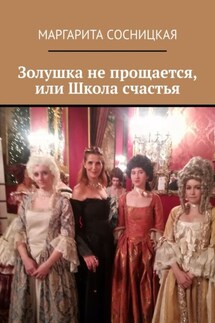Mercenary at heart - страница 5
It was a family tradition to gather around the dinner table and share with each other the news, achievements and failures of the day. This tradition was started by George. It strengthened family relationships from within, giving family members insight into the challenges each of them faced, helping them to work together to address their circumstances and providing sufficient and appropriate support. Generally, relationships within the family were trusting. No one tried to hide anything from each other – whether it was problems at work or at school, with colleagues or classmates. Everyone understood that family is a place where you can talk and share with others.
His parents made sure that Michael had a silver life support card throughout his childhood, up to the age of 18. He was even jokingly called ‘silver boy’ at school, although there were quite a few other kids like him. After all, the security card covered most of the medical expenses, including medicines. And there weren't many children who were completely healthy. Everyone was sick from time to time. Knowledgeable doctors were most often located in cities no lower than silver status, which still had to be reached. For this purpose, it was necessary to pay a daily intercity LWC at a high rate, but even this did not cover all the costs associated with, for example, complex operations in a foreign city. Therefore, if something really serious happened with health problems, the investment in the GLC, even with gold status, did not pay off, because they had to go to another major city, where the card of the conditional Ounvilshen was no longer valid.
Michael was very lucky with his parents. They had a strong family, whose relationships were built on mutual trust and respect. His mother worked as a waitress in a small cafeteria, his father as a driver for transporting goods of various complexity. It was decided that the son would follow in his father's footsteps and also become a driver. Although the choice of school for the future profession was not easy for the parents. The thing is that when passing the final tests there were several areas in which the boy could prove himself: programming, martial arts, vehicles and weapons. There was no doubt that he could make a good mercenary. But considering how many risks this profession entailed, the parents decided that it would be better for the child to choose a more calm and understandable direction. So they gave him to the school of transport. Michael's talents were good, plus the very idea of continuing his father's work bribed him with its traditionalism. Especially since it was not a job for hire, but a continuation of the family business. George worked for himself: he had a small firm, co-operating with partners in terms of receiving orders and renting transport for transporting goods. He had his own rather small personal lorry, which was not suitable for every job.
Since cities with bronze status are transport hubs and specialise in transport, the boy began to master most of the existing land, surface and air vehicles. The training vehicles were designed specifically to suit the modest stature of the trainees (scaled down prototypes of the original versions). Practice and training took place not only in the city where Michael grew up, but also in other cities. As it would be impossible to fit all the transport on the territory of one school. By the end of his training Michael should have been able to drive all types of existing transport. At least, that is what was recorded in the graduation certificate.







